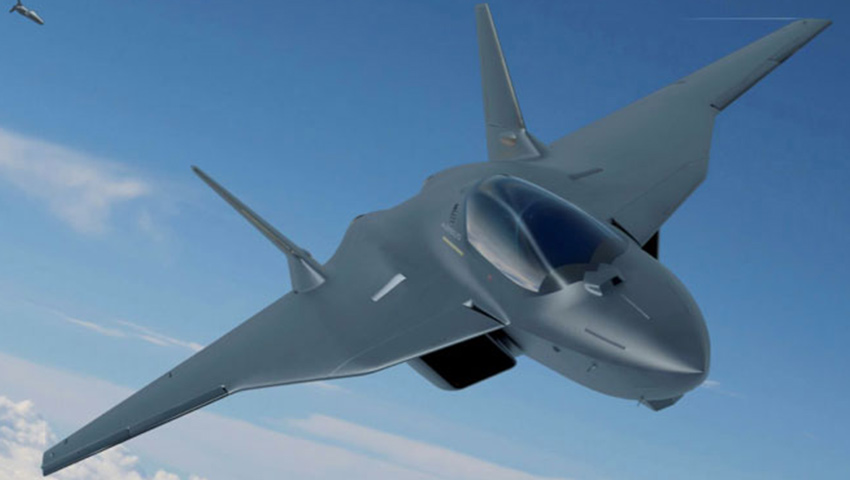The governments of France and Germany have awarded Dassault Aviation, Airbus, together with their partners MTU Aero Engines, Safran, MBDA and Thales, the initial framework contract (Phase 1A), which launches the demonstrator phase for the Future Combat Air System (FCAS).
Just a few weeks following the Japanese government's announcement that it was progressing its development of a next-generation fighter aircraft with the formal preparations for a “partnership framework”, European leaders France and Germany have taken the next steps toward developing their own fighter.
This framework contract covers a first period of 18 months and initiates work on developing the demonstrators and maturing cutting-edge technologies, with the ambition to begin flight tests as soon as 2026.
Since early 2019, the industrial partners have been working on the future architecture as part of the program’s so called Joint Concept Study.
Now, the FCAS program enters into another decisive phase with the launch of the demonstrator phase. This phase will, in a first step, focus on the main technological challenges per domains:
- Next Generation Fighter (NGF), with Dassault Aviation as prime contractor and Airbus as main partner, to be the core element of FCAS;
- Unmanned systems Remote Carrier (RC) with Airbus as prime contractor and MBDA as main partner;
- Combat Cloud (CC) with Airbus as prime contractor and Thales as main partner; and
- Engine with Safran and MTU as main partner.
The launch of the demonstrator phase underlines the political confidence and determination of the FCAS partner nations and the associated industry to move forward and co-operate in a fair and balanced manner.
The increased momentum enables industry to deploy the necessary resources and best capabilities to develop this decisive European defence project. FCAS will be the cornerstone project guaranteeing Europe’s future operational, industrial and technological sovereignty.
The next important step in the FCAS program will be the onboarding of Spain and the involvement of additional suppliers from Phase 1B onwards, which will succeed Phase 1A after its conclusion.
FCAS is expected to enter into service by 2040 and has been designed to be more than a combat aircraft. The FCAS is expected to serve as part of a system of systems, consolidating an array of interconnected and interoperable elements, including unmanned medium altitude, long endurance (MALE) drones, the existing fleet of Eurofighter and Rafale fighter aircraft, cruise missiles and drone swarms.
The FCAS system will serve as a critical component of a connected and interoperable system with a vast perimeter of specialist mission aircraft, satellites, NATO systems and a distributed network of land and naval combat systems.
FCAS is designed to assure European autonomy in the air and space domain, while enhancing existing political, strategic and industrial partnerships in Europe.
Airbus is a global leader in aeronautics, space and related services. In 2018, it generated revenues of €64 billion and employed a workforce of around 134,000. Airbus offers the most comprehensive range of passenger airliners.
With over 10,000 military and civil aircraft (including 2,500 Falcons) delivered in more than 90 countries over the last century, Dassault Aviation has built up expertise recognised worldwide in the design, development, sale and support of all types of aircraft, ranging from the Rafale fighter to the high-end Falcon family of business jets and military drones.
In 2018, Dassault Aviation reported revenues of €5.1 billion. The company has 11,500 employees.



